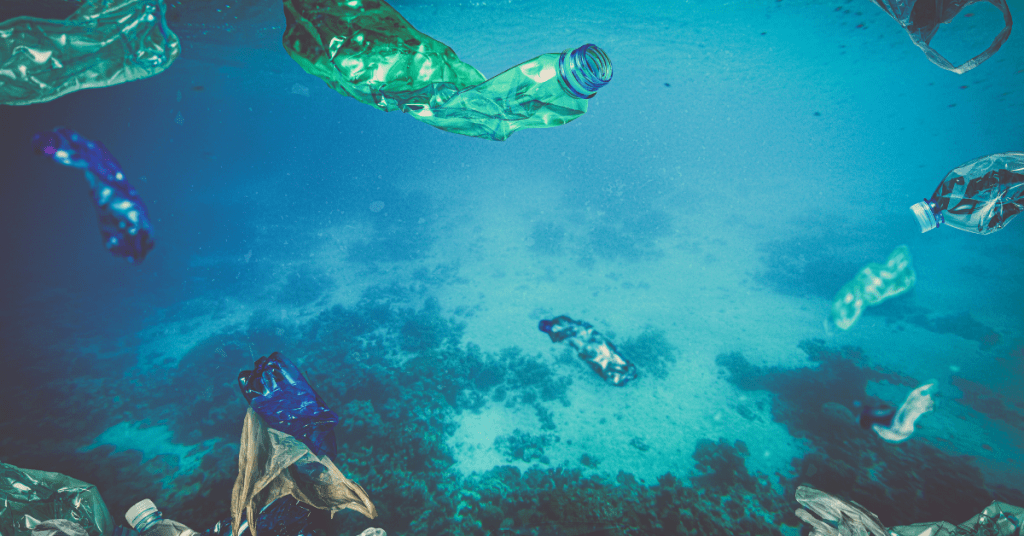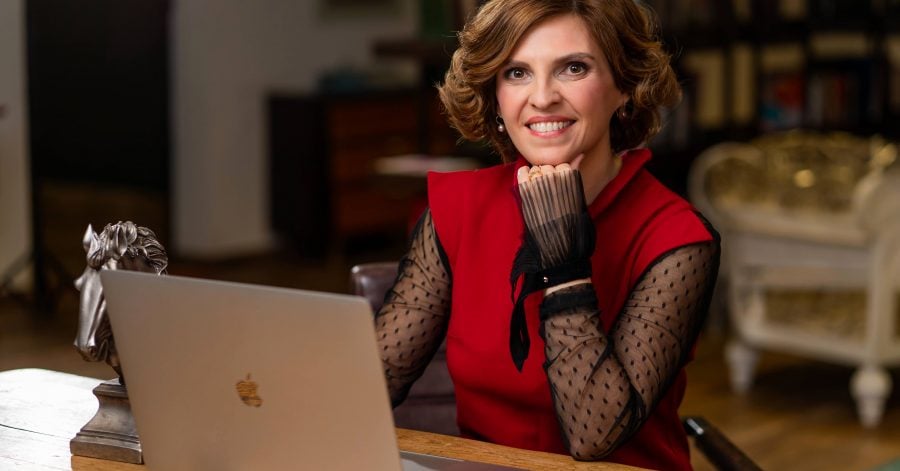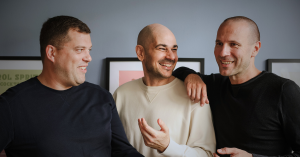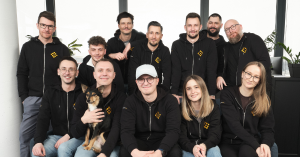Every day, around 5 kg of marine plastic build up along each kilometer of coastline. When it gets into our seas and oceans, plastic further breaks into smaller components – microplastics – that threaten the complex life of marine environments and contaminate marine food chains. As European states face new EU directives such as the single-use plastics ban, and further requirements are expected around marine plastic recycling, what if there were an end-to-end solution to facilitate and optimize the recycling of marine plastics for all stakeholders involved?
Romanian-founded Recycllux was launched to harness the power of technology innovations for society at large, by tackling the environmental challenge of marine plastic pollution across the entire value chain. Their idea for an end-to-end platform using machine learning and blockchain to identify marine litter and helping connect waste stakeholders was recently recognised for its ambitious goals at Innovation Labs 2021 with three prizes: Spinoff of the Year, and awards from BRD Groupe Societe Generale and Elrond Network.
To get up to speed with Recycllux’s innovative solution and business model, The Recursive interviewed PhD Alexandra Cernian, currently the company CEO. For Alexandra, a researcher, senior consultant, teacher, digital expert, and entrepreneur, technology is the common denominator of her multidisciplinary career. She is a lecturer on artificial intelligence, blockchain, and machine learning at the Politehnica University of Bucharest, an expert evaluator in the European Comission for startup programs, and a member of the National Council for Digital Transformation in Romania.
“My field of research, also connected to what I teach at the university, is related to artificial intelligence, data mining, and knowledge management. The company that we recently started is actually a spin off from the research activity that I’ve been conducting at the university in the machine learning field. I hope that what we propose with Recycllux will have a significant impact beside the research components, by providing a solution for recycling plastics from the oceans,” Alexandra says.
The Recursive: How did you decide to go with this application of machine learning?
Alexandra Cernian: After my PhD in data clustering, I continued my research with different topics related to artificial intelligence, semantic approaches to understanding language, and then a very natural approach was more recently related to machine learning, and its various applications.
The idea for Recycllux started from two main problems that we identified. The first problem that we eyed was plastic pollution, especially of our seas and oceans. It’s a threat that keeps growing, as more plastic waste gets into water streams. Every year, we have 12 million tons of plastics thrown into the oceans, which also comes with economic losses of up to $2.5 trillion.
The second challenge we identified is addressing companies’ needs in implementing new European Commision directives regarding waste management. A new recommendation is specifically forcing companies to get involved in recycling plastics from the marine environment. All European states will have to translate this directive into legislative reinforcements until the end of next year. We will probably see a new direction of Extended Producer Responsibility (EPR) schemes for waste management related to recycling plastics from the seas.
In this context, companies are facing the need for relevant tools to help them implement the recycling of single-use plastics. There is no end-to-end tool at the moment, which facilitates the entire monitoring and traceability of the waste management flow, from identifying where the plastics is located, to collecting and recycling it, while making sure that all the actors involved are compliant with the relevant legislation.
At Recycllux, we address these two challenges by combining the research activity related to machine learning, which can be used for identifying marine plastics in seas and oceans, and then developing a platform component that will bring together all the actors in the process: collectors, recyclers, and waste generators – the companies financing the campaigns. In addition, by using blockchain technology to power the platform, everyone would know what the other one is doing along the flow. Our goal is for waste management stakeholders to get more efficient at addressing these issues and reporting progress to the European Commission.

How will the business model work?
As a business model, one goal is to target sponsorship from companies that are dealing with plastic waste generation challenges to support the platform, ideally in a proportional way to the plastic footprint of the company. There will be a formula to evaluate this footprint and determine a fair price to sponsor interventions.
Other stakeholders will be collectors, more specifically to our case marine waste management companies. We will target the small to medium size ship companies, but then in a few years our target is to also bring in larger ships, which will be incentivized by a new revenue stream.
Other actors in the flow are the recyclers who aside from taking the plastic from the collectors will also have a contract with the platform, to see their engagement in recycling and to monitor the second generation of plastic products that result. We want to use part of the money received from waste generators to give a discount to recycling facilities. They will be incentivised to use our platform by purchasing plastic at a lower market price.
Overall, Recycllux will monetize the platform through 5% fee for each intervention.
What is the stage of the company? How are you managing the funding needs of the platform?
We are at the stage where we are validating the idea with companies regarding their needs and their interest in participating in two pilot projects next year. The next steps are to finalize the platform MVP and to validate the solution in a real environment through the pilot projects.
We have also been applying for external funding. So far, we were told that our development stage is too early and we need to take it a bit further first. So, once we finalize the MVP, we plan to reapply for funding from the European Commission. We target the EIC accelerator program, which is dedicated to startups and SMEs with deep tech innovations.
In terms of geography, we are first targeting Romania, considering that we are all based here and our network of contacts will probably facilitate a strong lobbying support locally. Later on, we hope to expand to other countries.
What are your thoughts on how the overall local ecosystem for innovation is evolving?
It’s a very good time for innovative startups to grow quickly and to accelerate their business ideas in the Romanian and overall European environment. As Europe realized they are losing competition with the United States, they started launching more and more funding programs and to support startups and spinoffs in technology transfer from ideas to products. There’s a very good momentum for researchers in Romania to make a quick transition from their research to commercial products.
Another good news is that investment funds, VCs, and business angels are starting to be more and more active in Romania. Available funding has been growing from one year to another.
What has been bringing you the biggest satisfaction throughout your professional career?
So, because my university career is mostly focused on teaching activities, the biggest satisfaction comes from seeing that my work is relevant, by making an impact with the younger generations and future engineers. My main drive in everything that I do is more or less giving back to my students, and to society overall.
Which one piece of advice would you give young entrepreneurs in Romania?
I try to encourage my students to go for entrepreneurial initiatives. To summon the courage to identify some challenges and to think creatively about possible solutions. Then it’s all about trusting those solutions and acting on them.
Unfortunately, I think they still have some barriers from an openness-to-risk perspective. The Romanian entrepreneurial environment is more risk averse than other markets. But when we talk about technological innovations, they usually come hand in hand with a higher risk potential. Reaching for a unicorn status entails more risk than going for a traditional approach.
What I noticed is that many Romanian startups prefer safer approaches, such as models that have been already validated. They don’t really have the early adopter mindset or innovator mindset fully adopted. For the moment, we still focus on incremental innovations, rather than big innovations that can change the game for different markets. I would say the same story goes with investors, who prefer to invest in something that is less risky, where they find incremental growth, instead of exponential growth.
However, I am also noticing a gradual shift in mindset. We have more and more success stories in the startup world like UiPath, FintechOS, and Typing DNA.








